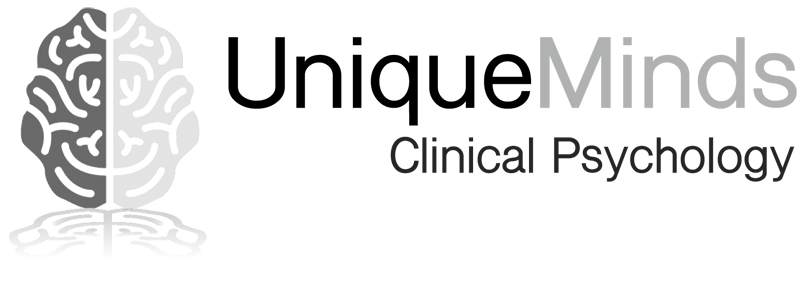Treatment Model
Unique Minds Clinical Psychology is founded on the following three principles:
Using only treatments that are supported by an appropriate scientific evidence-base;
Tailoring treatments to each client to recognise their unique presentation; and
A commitment to continued learning through research and development using scientifically appropriate methodologies.
Cognitive Behaviour Therapy (CBT) is the theoretical model underlying treatment at Unique Minds Clinical Psychology. All clinicians at Unique Minds Clinical Psychology have been extensively trained in, and practice, CBT. CBT is the umbrella term used to describe a range of psychological treatments that focus on reducing factors that are maintaining a client's psychological distress. CBT has a number of distinctive features, which are described below. CBT has been successfully applied to a wide range of psychological problems from anxiety disorders and depression, through to addictions and schizophrenia, from the management of physical problems such as chronic pain, irritable bowel syndrome and tinnitus to adjusting to life changes.
Other psychological treatments such as Mindfulness-based therapies, Schema Therapy, Acceptance and Commitment Therapy, and Metacognitive Therapy have their basis in CBT and may be used to augment traditional CBT techniques during your treatment. All treatment at Unique Minds Clinical Psychology is tailored to the needs of each individual client. This approach has been comprehensively researched and is widely recommended as possessing the strongest evidence-base for treatment effectiveness.
The distinctive features of CBT, and therefore, the features you may observe during treatment at Unique Minds Clinical Psychology are:
(1) A collaborative approach to psychological therapy - the client and therapist ideally operate as a team in tackling the client's problems.
(2) Practical techniques - emphasis is on the use of practical techniques to address current problems in contrast to traditional 'talking' therapies which often focused on childhood experiences through extended dialogue.
(3) Empowering the clients - CBT equips clients with the skills to tackle their own problems rather than the clinician maintaining the expertise and skills. “Homework tasks” where the client practices skills between sessions are a key part of CBT. This also means that the client is able to continue to put techniques into practice once therapy has concluded. Not surprisingly this often reduces the risk of relapse.
(4) Brief therapy - CBT is largely a brief, goal focused therapy rather than therapy such as Freudian psychodynamic therapy, which has earned a reputation in some circles for involving weekly visits over many years with limited measurable progress. (A key exception is CBT / schema therapy for personality disorders which is often highly intensive running for well in excess of 12 months). This also has the benefit of making therapy more affordable.
(5) Emphasis on scientific evidence of effectiveness - CBT has a significant Evidence Base supporting its use for many types of psychological dysfunction and disorders. It assumes that psychological therapies should be informed by, and subjected to, rigorous scientific investigation. This is in contrast to many therapy approaches that are based on sometimes credible, but untested, theories.
“In Australia, Cognitive Behaviour Therapy is one form of therapy explicitly covered by the Federal Government’s guidelines for the provision of psychological services under Medicare.”

